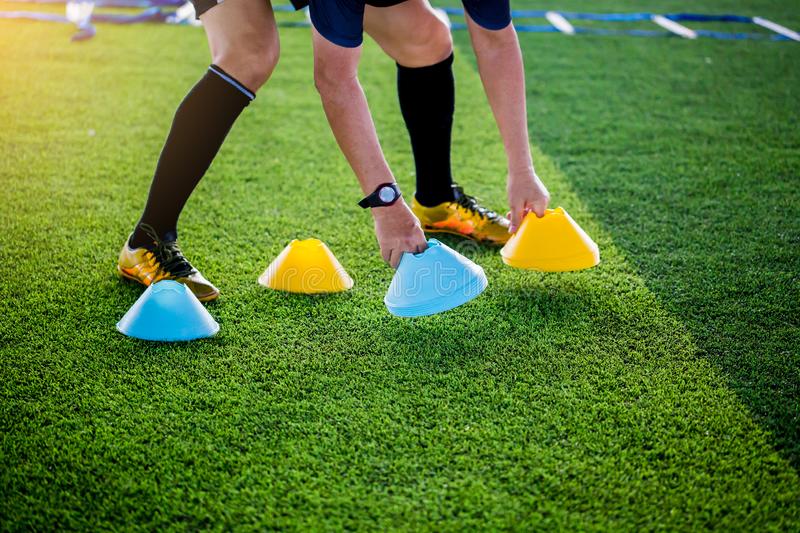"We can't improve what we don't asssess" - Michael Hyatt
Self awareness is a skill that few people actively work to develop. As foundation age coaches, it is a skill that we must possess in order to get the best out of the players we work with, the session we deliver and our own performance. Far too often I see coaches willing to blame the players for a bad game. I've been there too! In my younger years it was far easier to blame the players than tell myself "I should have done that better."
I recall one game where a U12 team I was coaching won 2-0 and the opposition coach had his team sitting down for 15 minutes after the game, berating them for their "lack of effort". By assessing his own performance he would have seen that his team were not comfortable playing in tight spaces (we sat deep). He would have also seen that they were over-reliant on balls over the top.
I ask myself the following 5 questions after every practice and game. I find this keeps me on an even keel and allows my to pick apart poor behaviours both in practice and during games.
What Did I Do Well?

"We tend to be our own worst critic" is a phrase commonplace in most of the English-speaking world. It has a lot of weight behind it too. Unsuccessful job interviews, breakups, even not wearing your lucky pants for a game of golf has most people looking down on themselves. It's one of those internal mecahnisms that most humans suffer from (article). Evaluating our coaching performance is not immune from this.
I'm terrible for it. If anyone asks me to self-evaluate, my initial thought is to look at the negatives. The cones weren't straight enough, I was too hunched over when talking, my demo should have been quicker. While this helps keep me on my toes, it can be quite damaging mentally if everything I think I'm doing is wrong. This is why the first questions I ask is "what did I do well?"
Even coaches that have horror sessions will have something to pick out that was good. I know that my coaching during my most recent U10 session (click here to view) could have been better. Despite this, as the session went on, I was able to make positive changes. I held back from stepping in too much and gave the players a bit more time to figure things out. This went in the "do well" box, and it is something I will remember this evening when I work with my boys group.
Note down your positives. After all, these are the things we want to keep.
What Can I Improve?

While we want to note our positives, recognising what we could improve is where our self awareness comes into full effect. We all know a person who is "never wrong". While these people are not to be taken seriously, justifying actions that we would normally vilify others doing is a trait in most, if not all, people (article). In the coaching world, it can be quite common to acknowledge someone else's shortcomings. I have been very guilty of this. As someone who evaluates coaches, I know I've had moments where I have made suggestions to them, then done the complete opposite come my next session.
Writing down the things we need to improve next time is not easy. It also requires you to detach yourself form the session and view it as an outsider rather than internally. Publishing your session feedback to social media sites can help, if you are part of a coaching community on there. Similarly, videoing your session (with consent of the players' parents) can be another way to hold yourself accountable. I have started doing this with the videos available as part of our Premium Membership (click here to view week 1).
Acknowledging the improvements is not enough. Try and be consciously aware of it the next time you run a session and use it as your personal development plan.
What Would I Change?

The technical side of a session can always be improved. It may be that a particular progression didn't work, or the numbers of groups weren't quite right. I ran a session this week where I wasn't happy with the spacing that I provided. It was a ball mastery activity where players were in a box. I felt the boxes were too big and when I run the session again, I'll be making sure that they're tighter and more challenging.
Look into as many nooks and crannies at how the session played out as possible. Consider the following
The flow of the session from one activity to the next
The size of the grids used
Amount of balls that you had available
The progressions
The conditions
Numbers in the groups you set
By making these changes on a consistent basis, it allows you the chance to revisit the session and allow for greater success the next time you use it.
Were my Coaching Points Clear and Easy to Understand?

"Let's make sure we get wide, draw the opposition in then look to switch. I like what you are doing but you're playing to high, come deeper. You - get into them! We are possessing, but we need to play between the lines more often to get some penetration and if we lose the ball, press like mad. Show them inside and don't give them any space!"
That might make sense to you and I, but for an 8 year old listening to that it's likely to be complete jibberish. Coaching is a form of public speaking and as such, we must speak in a way that our audience understands. This goes for both practice and games.
I was guilty of not doing this in a recent session. It was obvious by the end that the players had not fully understood what was being asked of them.
2 key elements that I try and use in the information I present are
- Making sure they players know WHY we do something on the pitch
- Having a word of the week that players are explained the meaning of at the start of the session
A word like "possession" (current theme with my Grassroots teams) could mean anything to a player. Explaining that it is when we keep the ball from the opposition paints a clearer picture for them. I then repeat the term multiple times per session so the players get used to hearing it, as well as asking them at the end what the term means.
I have seen many inexperienced coaches as far as technical expertise is concerned have great results with their players because they can communicate at their level. I have also seen decorated coaches in terms of qualifications and experience struggle with younger players because they cannot explain things clearly. Be in the former category.
Did the Players See Success in the Game?

Ultimately, whatever the theme of our practice, we want to see it displayed in the game, both at the end of practice and on the weekend against an opponent. For me, this is the surest sign that we are on the right track as far as our teams developing is concerned.
How do you judge success? This is very subjective. I believe, if we are talking about grassroots players, that if we see the theme come out 2/3 times in a game, then we can deem that successful. For the next game, we can then look for it to happen 4/5 times, then 6/7 and so on and so forth. These small improvements are what will take us towards our long term goal for what we want the players to do before they move on to a higher level.
Are there any other questions that you ask yourself post-practice/game? Share them in the comments

